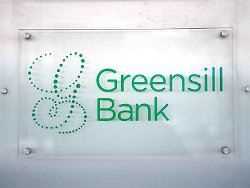Tuesday March 16, 2021
BaFin: Compensation case
Campino brother handles Greensill Bank
The insolvency proceedings are open, creditors can register their claims: Bremer Greensill Bank is closing. Savers get away with a black eye. Municipalities will likely have to write off their deposits.
The Greensill Bank can no longer be saved: Less than two weeks after the financial supervisory authority BaFin closed the institute, the Bremen District Court opened insolvency proceedings. On the same day, BaFin established the claim for compensation. Private investors will now get their deposits back within the next few days. Numerous municipalities, on the other hand, could go away empty-handed, their deposits are no longer covered by the deposit protection fund of the private banks. It is the greatest burden for the fund since the bankruptcy of the US bank Lehman Brothers in 2008.
The court appointed the Hamburg attorney Michael Frege from the law firm CMS Hasche Sigle as the insolvency administrator. The brother of the singer Campino from the rock band "Die Toten Hosen" knows about bank failures. With the German subsidiary of Lehman Brothers and Maple Bank, he had handled the two largest bank insolvencies in Germany in recent years. At Lehman Brothers Bankhaus AG, his three-digit million fee, which is based on the bankruptcy estate, made headlines. However, he was able to fully compensate the creditors.
Savers are compensated – municipalities not
The deposit protection fund will shortly contact the savers concerned, said the banking association BdB, to which the fund belongs. The compensation will be made within seven working days. At Greensill Bank, 74.96 million euros are secured per customer. According to insiders, the fund is preparing to pay out around three billion euros to private savers.
However, since the beginning of October 2017, deposits from institutions such as the federal, state and local governments are no longer subject to the protection scheme. According to insiders, this customer group has around 500 million euros on fire. So far, a volume of over 250 million euros is known from 26 municipalities. Whether they will ever see their money again depends on how much Frege can still secure. In general, the bankruptcy rates are significantly higher at banks than at other companies.
Several municipalities accuse the financial regulator of having informed too late about the problems at Greensill Bank. According to the city of Monheim am Rhein, 26 affected cities and municipalities want to get together in order to get back part of their deposits from the bankruptcy estate, as Monheim announced. In addition, liability claims are to be examined jointly.
BaFin stated that the banking association had communicated that the funds from municipalities were no longer protected, and that this had also been made clear in the specialist press for treasurers. She closed Greensill Bank at the beginning of March because of the threat of over-indebtedness and reported the management to the Bremen public prosecutor's office because no evidence could be provided for claims in the balance sheet.
Supplier receivables bundled into bonds
The Bremen institute had collected savings deposits from private investors via online portals such as "Weltsparen" and "Zinspilot" with comparatively high interest rates, with which the British-Australian parent company Greensill Capital was secured. In 2019 alone, the bank's total assets rose from 760 million euros to 3.8 billion euros. At the end of 2020 it amounted to 4.5 billion euros.
Bremer Bank's parent company, Greensill Capital, filed for bankruptcy a few days ago after insurances for its funds were discontinued. The core business of the company, founded in 2011 by Australian Lex Greensill, was supply chain financing. Greensill bundled supplier receivables into bonds and sold them to investors. Among other things, she ran the fund business with the Swiss bank Credit Suisse. Due to the collapse of Greensill Capital, this is preparing for financial burdens.
.
